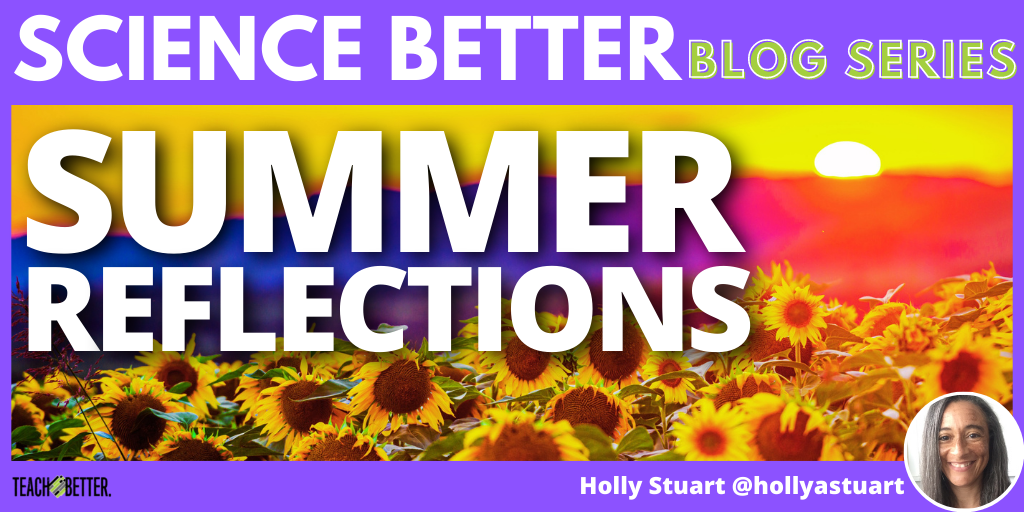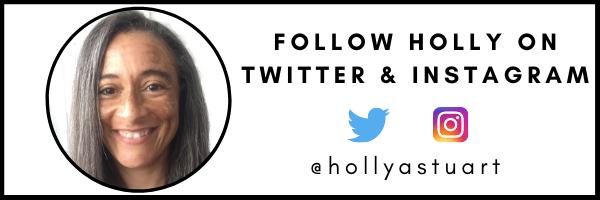TL;DR:
- Relationships you build with your students go beyond the classroom.
- Research-based best practices are worth the extra effort.
- It is not enough to know your content, you have to know how to teach it.
As I write this blog, it is mid July, and for me, that is the sweet spot during the summer. Enough time has passed to reflect on the prior school year, but the next year is still far enough away that the pressure to start planning and prepping hasn’t kicked in yet. It is a time for rest and relaxation. And it was during this time that I had the pleasure of running into three students I had taught several years ago. During this chance encounter, they each shared a message that touched my teacher-heart in unique ways.
Relationships Matter
The first student told me that her most impactful memory of me as her teacher had nothing to do with her time in the classroom. It was when I came to see her perform in a play. She said that she couldn’t believe that I would take time out of my day to come and see her on stage. I shared that I was so happy to have been able to go to the play and see the quiet shy girl in my classroom blossom on stage.
She was able to see that I cared about her for more than her ability to learn science content. That moment all those years ago taught me to look for opportunities to really see the whole child that I was teaching. She then told me that she is going to college as a performing arts major and I have no doubt that she will go on to do amazing things in the future!
She was able to see that I cared about her for more than her ability to learn science content. That moment all those years ago taught me to look for opportunities to really see the whole child that I was teaching. Click To TweetBest Practices Matter
The second student in the group shocked me when she said that she still has her interactive science notebook from my class. This was surprising to me because (as she willingly admitted) she didn’t really like working in the notebook when she was in my classroom. But she said that she used it later in her high school physics class and that it really helped her understand the content! Even though I am very passionate about using interactive science notebooks in the classroom (see my blogs about what they are, how I set them up, and how I use them for more information), I would constantly wrestle with whether or not they were worth the time and effort.
In my gut I knew it was a best practice and I read the research that showed the cognitive benefits of using interactive notebooks. This moment reaffirmed my belief that the hard work is worth it for all of the skills that students gain (organization, note taking skills, creative thinking skills, understanding of content, etc.). Oh, and she proudly told me that she is going to college to study computer science. The look on her face when she told me that she was going to be a scientist was priceless!
How You Teach Matters
What the third student in the group shared with me both made me really happy and really sad at the same time. He told me that he enjoyed my class and had a lot of fun (I clearly remember he turned in some outstanding projects that demonstrated his understanding in deep and creative ways!), but that I was the last good science teacher that he had. Now keep in mind that I taught him in 8th grade. That means he went through four more years in high school with what he claimed were not good science teachers. He told me that he could tell that these teachers were really smart and knew their content, but that he felt that they didn’t know how to teach the content.
What a powerful reminder of the art and skill required of teachers. It isn’t enough to be an expert in your content—you have to break it down and give it meaning to your students. Luckily this student was an intelligent and motivated student, so he didn’t let his high school experience hold him back. He wants to go to college to study engineering—which is pretty impressive!
[scroll down to keep reading]
Reflect and Grow: Best Practices
This chance encounter with my former students meant a lot to me. Seeing the impact that I was able to have on these young adults, our future, made me stop and reflect on the heavy responsibility teachers have every day. This is why what educators do is so important. And as much as we teach, we also have to learn.
So, as you take your summer to reflect and relax, I ask you to also take time to reassess. What can you do to become a better educator next year? How can you maximize your time with the next group of students you have the honor and privilege of teaching? What can you learn from them and about them? What research backed strategies can you incorporate into your instructional practice to make an impact?
Please be sure to tag me on Twitter to share your ideas, reflections, and questions. Let’s all work together to Science Better!
About Holly Stuart
Holly Stuart is the Education Specialist for Foldscope Instruments and former 8th grade science and design teacher in South Carolina. Her passions include finding new and innovative ways to provide access to scientific tools to students everywhere because she knows that when students have access to the wonders of science, they can discover new scientific concepts through inquiry, and learn science by doing science.
In addition to her out-of-the-box approach to teaching science, Holly successfully implemented The Grid Method into her teaching practice and is currently a Teach Better Team Mentor Ambassador.
Holly is married to her high school sweetheart and is a mother to three children. When not working, she enjoys traveling and being outside with her family. Some of their favorite outdoor activities include hiking, running, biking, and gardening. (Holly often brings her telescope, binoculars, and microscopes with her on hikes!) Her indoor hobbies include reading, writing, and learning more about sketchnoting and drawing.




